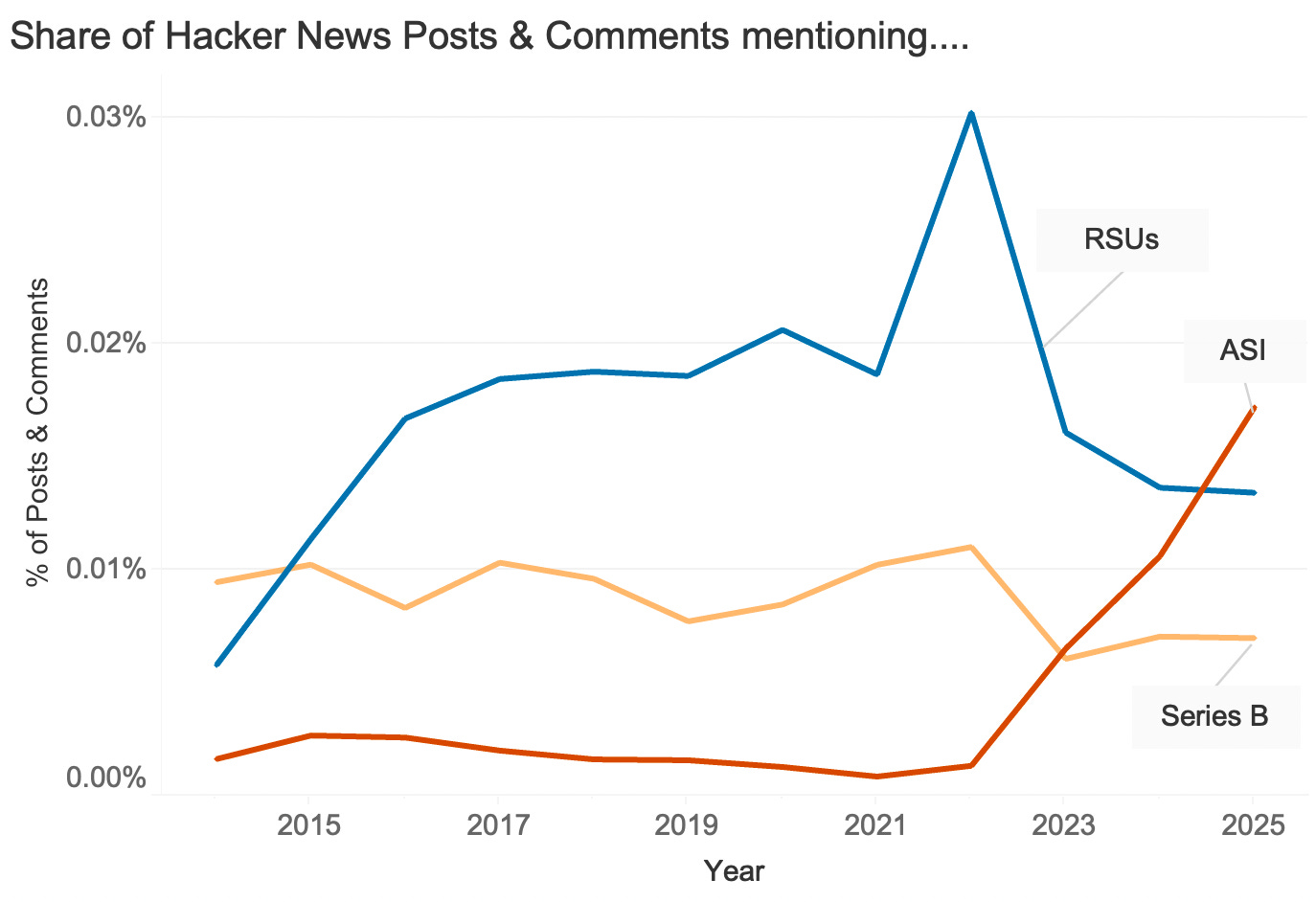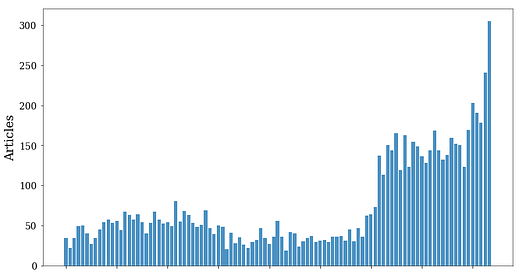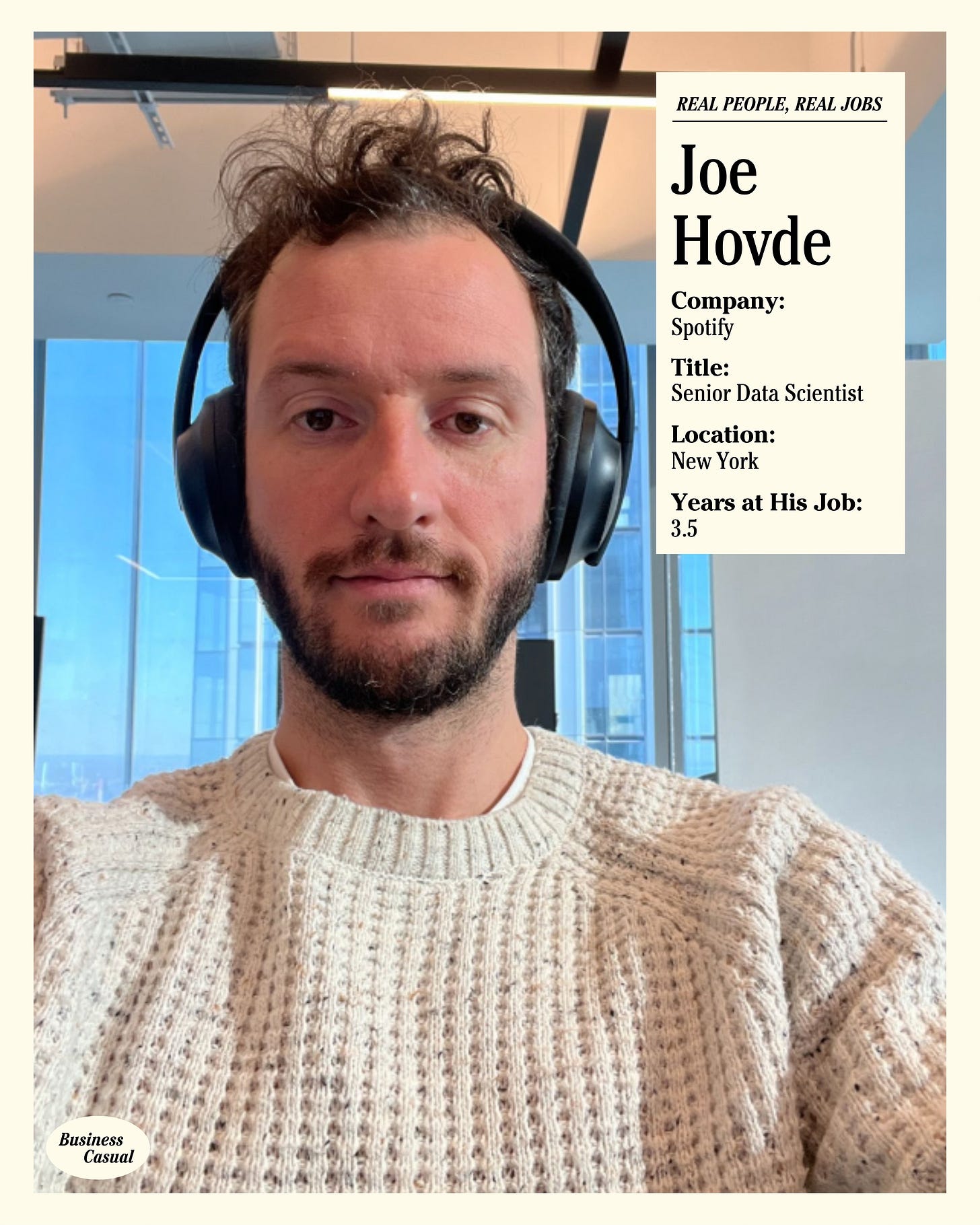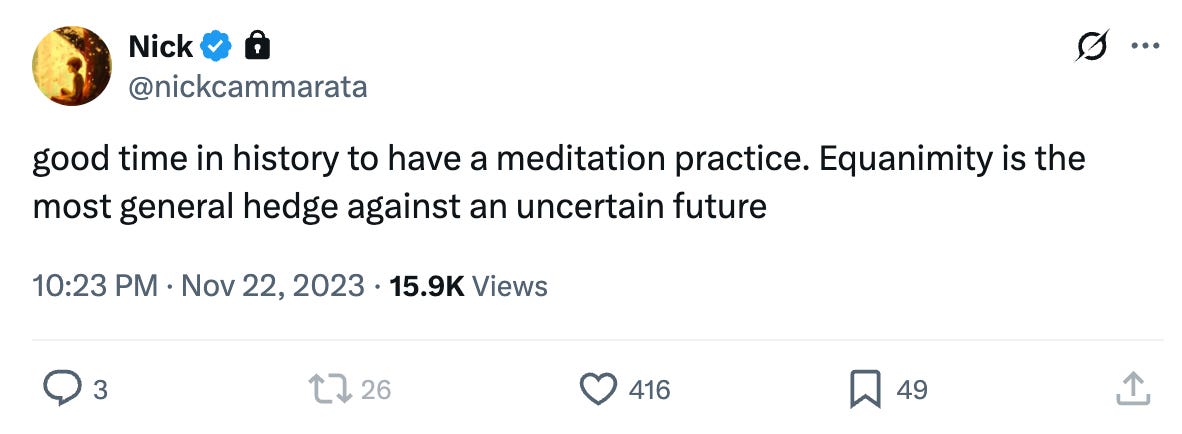A brief note:
was kind enough to feature my job in her excellent series “Real People, Real Jobs” showcasing different careers and what people actually do in them. If you’re interested, and particularly if you’d like to get into data/tech, check it out here. It features this nicely designed picture of me wearing headphones at my desk:Today’s article is decidedly not whimsical; if you are feeling anxious please don’t read this and instead go hang out outside and people-watch at one of these places. We’ll return to our regularly-scheduled whimsical programming next week. Thanks for being here.
I have visceral memories of late February and early March 2020. I remember not taking Covid seriously — I thought about it like SARS or Avian flu which made the news but never ended up impacting my life. I remember walking through Chinatown in San Francisco and feeling vaguely smug that I wasn’t letting racist panic deter me from carrying on with daily life. I remember voting to keep coming into the office the first week of March, because I wanted to appear committed to work and I didn’t think it mattered much if I got sick.
Then, of course, everything changed:

A turn-of-events seared into my memory is late February to mid-March of 2020. In those last weeks of February and early days of March, I was in utter despair: it seemed clear that we were on the covid-exponential: a plague was about to sweep the country, the collapse of our hospitals was imminent—and yet almost nobody took it seriously… The next few years in AI will feel similar.
Leopold Aschenbrenner’s Situational Awareness, June 2024 (emphasis mine). You can read my reaction to the piece from last year here.
Since I read that piece and began viewing AI progress as an exponential curve, I’ve felt like I was straddling a a growing chasm, with two tectonic plates shifting underneath me. My right leg has been in the world where people are going to weddings, considering business school, maybe traveling to Japan and/or the Dolomites.1
My left leg has been in a world that is changing faster than anything I’ve seen before, where all of my prior beliefs about how the future will look are being challenged, where seemingly reasonable people talk seriously about existential risks to humanity in the next decade.
This straddling has been pretty uncomfortable; I resonated strongly with
’s articulation of it in January of this year and since then have tried to limit my consumption of AI-related content for the sake of my happiness. Shifting my weight to my right leg has felt better than doing the splits.But now it feels now like those worlds are beginning to converge, as the first plate catches up to the second plate:

In the past month I’ve felt an uptick in articles in mainstream publications that feel less like “look at this weird tech thing that could be a big deal in the future” and much more like “there’s a giant wave cresting above us.” And the other day, I saw this tweet from Obama, which felt like the mark of a new phase in this crisis2.
To give us a sense of comparison, I looked back at Obama’s tweets from January through March 20203, and the first time he posted about Covid was March 12th:
So, I think we’re moving into the phase where this conversation will be ubiquitous. It has already gotten annoying to hear about — when AI comes up in conversation, you tend to hear groans. Unfortunately, where Covid dominated our lives for ~2 years, I can’t really see this slowing down in the next 5.
Looking at posting data from Hacker News (which I would blithely categorize as “reddit for bored software engineers”), you can see that a fair number of people in technology have already been thinking about this stuff for a while. As Artificial General Intelligence (AGI) gets closer to reality, we’ll have to figure out how to deal with it & the accompanying risk; for those of you who haven’t been as close to this, P(doom) is AI Safety-shorthand for “probability of a terrible outcome for humanity from misaligned AI systems.”

You can find lots of examples of these comments perusing Hacker News. I wouldn’t necessarily recommend it. It makes me nostalgic for the halcyon days of 2022, when cushy tech jobs grew on the eucalyptus trees in San Francisco and Hacker News posters didn’t have to worry about Artificial Superintelligence (ASI). Instead they could just debate taking a ton of RSUs from a FAANG company or joining a Series B SaaS startup before the founder gets rich selling secondaries and shutters the company:

All of this stuff is really difficult to think about. There are lots of people who are optimistic about AI, but even if their future is a more accurate one, I am convinced it will mean a ton of rapid change, and change is hard. A few things I have found comforting as I’ve grappled with this:
Focusing on the people in your direct community, people you can see and touch. The pleasure and fulfillment you get from other people cannot be abstracted away by technology, unless you let the instant gratification of technology trap you in a warm bath of digital isolation.
Everyone will be in this together; this will not be limited to software engineers or truck drivers or hypothetical data scientists.
There are good things that will come out of this; in particular I expect we’ll make incredible progress in medicine which will save and improve many lives.
Reading older fiction has been particularly comforting to me. Reading something like Edith Wharton’s A Son at the Front about the family of a solider in World War I makes you realize how much calamity people have dealt with in the not-so-distant past.
I think this is excellent advice; anything you can do to develop resilience to change is a good thing:
And finally, the day I read the terrifying AI 2027 report, Miley Cyrus dropped this absolute banger, which I highly recommend listening to outside this weekend while you have fun with people you love:
This absurd lack of engagement on what is frankly an amazing tweet is why I’ve mostly stopped tweeting (also, the pivot to fascism).
I struggled with the word to choose here. “Crisis” feels a bit hysterical, and also like it implies a shorter duration — can a society be in crisis for a decade? But nothing else felt right. “Shift” is not extreme enough; “dislocation” is a little too amorphous, and “disruption” is obviously too cringe for me to write about a serious topic.
Seeing this cute post of him and Michelle made me really really hope the rumors about their marriage are unfounded.








Wow I should also start linking my amazing tweets that got no love in the footnotes of my essays 😂
I went to Salesforce’s Agentforce conference a couple weeks ago and I literally felt like Sarah Connor trying to warn everyone that this is how it starts!